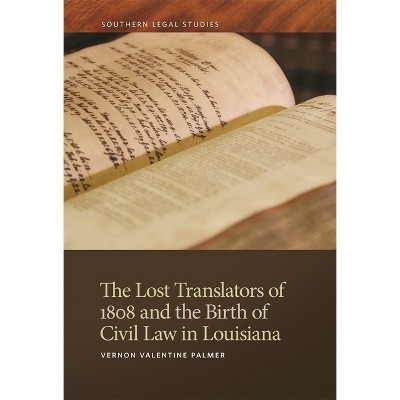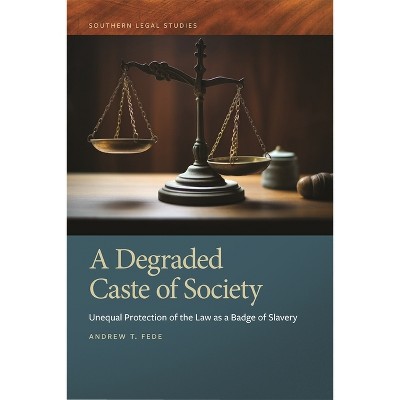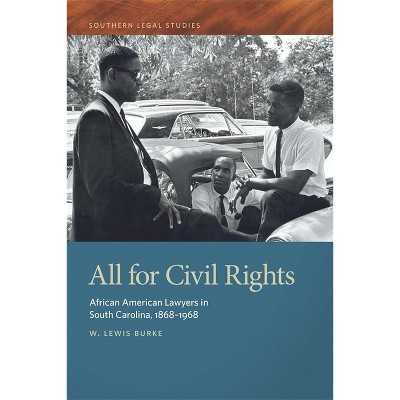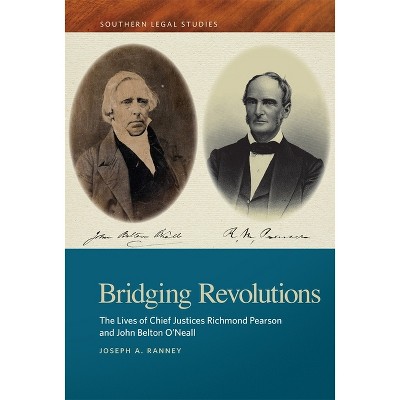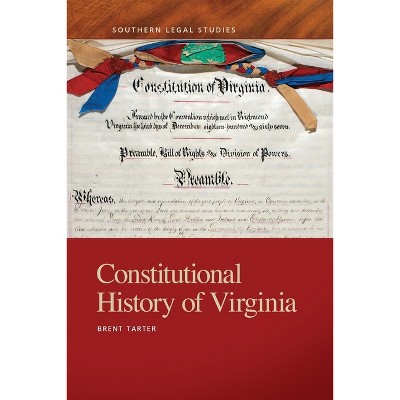The Southern Judicial Tradition - (Studies in the Legal History of the South) by Timothy S Huebner (Paperback)

About this item
Highlights
- This first book to examine the lives and work of nineteenth-century southern judges explores the emergence of a southern judiciary and the effects of regional peculiarities and attitudes on legal development.
- About the Author: Timothy S. Huebner, L. Palmer Brown Professor of Interdisciplinary Humanities and Chair of the Department of History at Rhodes College, is author of "The Taney Court: Justices, Rulings, and Legacy" and coeditor, with Kermit L. Hall, of "Major Problems in American Constitutional History," second edition.
- 280 Pages
- Freedom + Security / Law Enforcement, Legal History
- Series Name: Studies in the Legal History of the South
Description
About the Book
This first book to examine the lives and work of nineteenth-century southern judges explores the emergence of a southern judiciary and the effects of regional peculiarities and attitudes on legal development.Book Synopsis
This first book to examine the lives and work of nineteenth-century southern judges explores the emergence of a southern judiciary and the effects of regional peculiarities and attitudes on legal development. Drawing on the judicial opinions and private correspondence of six chief justices whose careers span both the region and the century, Timothy S. Huebner analyzes their conceptions of their roles and the substance of their opinions related to cases involving homicide, economic development, federalism, and race. Examining judges both on and off the bench--as formulators of law and as citizens whose lives were intertwined with southern values--Huebner reveals the tensions that sometimes arose out of loyalties to sectional principles and national professional consciousness. He exposes the myth of southern leniency in appellate homicide decisions and also shows how the southern judiciary contributed to and reflected larger trends in American legal development. This book adds to our understanding of both southern distinctiveness and American legal culture.Review Quotes
This thoroughly researched and persuasively argued book makes a significant contribution to state judicial historiography and to our growing appreciation of the regional character of American law in the 19th century. I strongly recommend it.
--R. Kent Newmyer "author of Supreme Court Justice Joseph Story"A fine work of scholarship, well researched and cogently argued.
--Journal of the Early RepublicA must-read for legal scholars and historians of the nineteenth-century American South.
--Arkansas Historical QuarterlyA useful work, illuminating the lives and careers of six heretofore obscure Southern jurists in a learned and interesting fashion.
--H-LAWFor those interested in understanding southern jurisprudence or comprehending the . . . southern political system, Huebner's study merits serious attention.
--Florida Historical QuarterlyHuebner . . . offers a sophisticated interpretation of the cultural forces behind the shifts in legal thought in the nineteenth century.
--H-SHEARHuebner's fine study . . . marks an important contribution to nineteenth-century historiography.
--Law and History ReviewRaises important questions and offers helpful perspectives on the role of sectionalism in American legal history.
--Journal of Southern HistoryAbout the Author
Timothy S. Huebner, L. Palmer Brown Professor of Interdisciplinary Humanities and Chair of the Department of History at Rhodes College, is author of "The Taney Court: Justices, Rulings, and Legacy" and coeditor, with Kermit L. Hall, of "Major Problems in American Constitutional History," second edition. He and Paul Finkelman edit the series Studies in the Legal History of the South.





